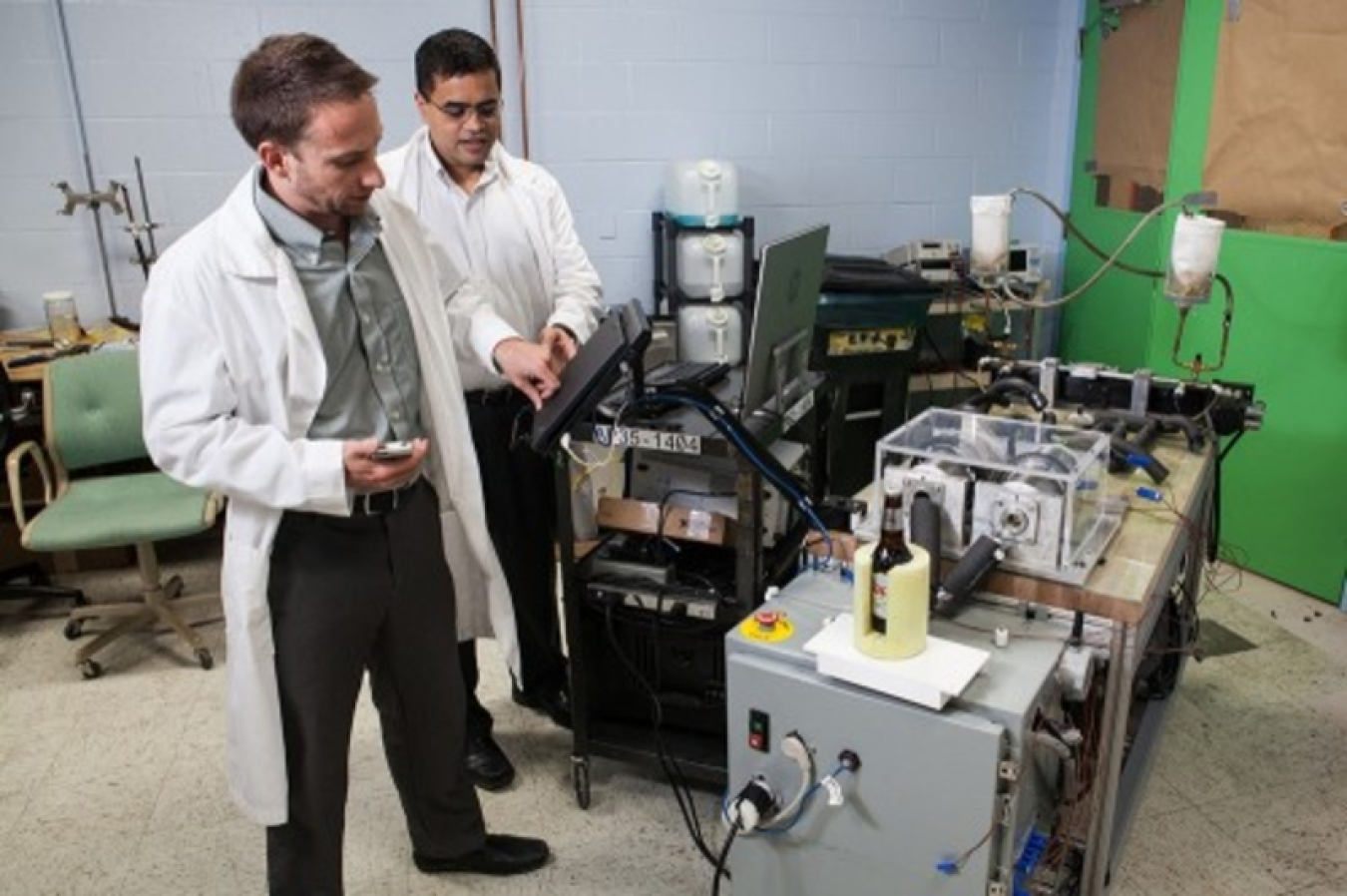
Researchers demonstrate General Electric's magnetocaloric system.
Lead Performer: Oak Ridge National Laboratory - Oak Ridge, TN
Partner: General Electric - Fairfield, CT
DOE Funding: $2,105,000
Project Term: August 2013 - September 2016
Project Objective
CRADA Project
This is a cooperative research and development agreement project (CRADA). CRADAs are partnerships in which a private sector partner and a national lab work together to further research and development. Find out more.
This project is developing a residential refrigerator/freezer with 20% lower energy consumption relative to current U.S. Department of Energy minimum efficiency standards. The refrigerator will be designed to use the magnetocaloric (MCE) effect rather than a conventional vapor compression cycle and thus reduce greenhouse gas emissions by eliminating the use of high-global-warming-potential refrigerants. Refrigeration technologies based on MCE are fluorocarbon-free and offer potential energy savings of 20%–30% over conventional vapor compression systems.
Project Impact
ORNL estimates the potential savings to be 0.28–0.42 quads annually, assuming full market penetration. This project addresses the Building Technologies Office’s goal of developing highly energy-efficient appliance equipment that will significantly reduce overall energy needs in new and existing buildings.
Contacts
DOE Technology Manager: Tony Bouza
Performer: Ayyoub Momen, Oak Ridge National Laboratory
